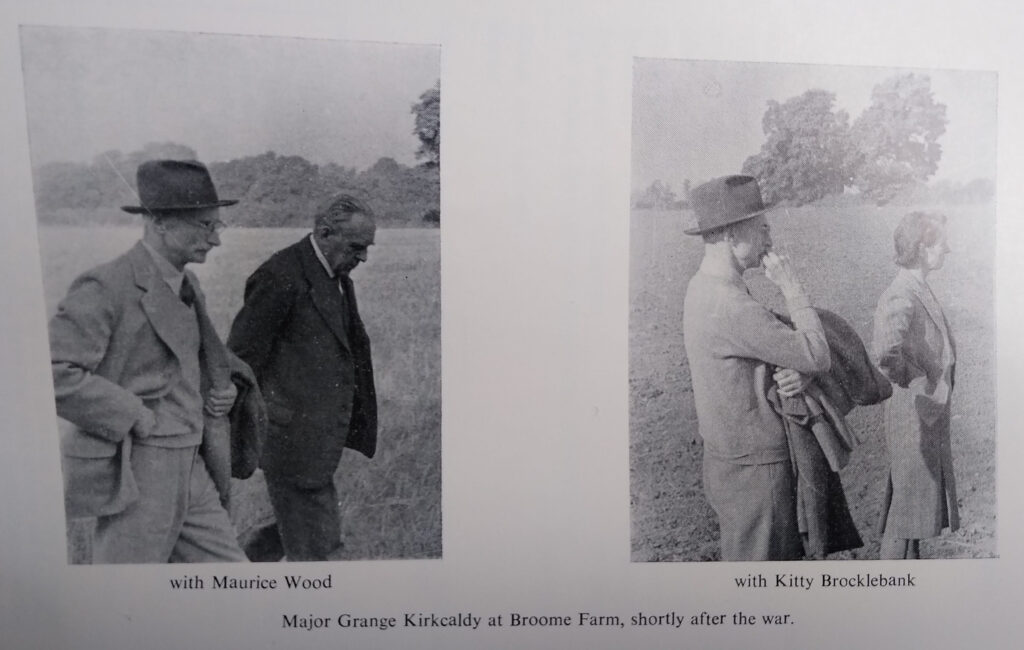Grange Kirkcaldy
BD pioneer and sponsor. Originally from New Zealand – see this paper for more from which the following is extracted – he farmed the Lodge of Auchindoir:
To those identified by Paull and Turbott might be added a forgotten figure with a New Zealand connection: Grange Kirkcaldy (1895–1979), originally from Dunedin. Kirkcaldy was born in New Zealand in 1895. The son of a prominent Dunedin insurance underwriter, he passed the Teachers and Civil Service exam in 1911 and that same year sailed on the Corinthic for London. By 1914 he was student at Corpus Christi College at Cambridge and enlisted in the university brigade before transferring as a 2nd Lieutenant to the Army Service Corps on account of his ability to drive and speak French. Later he served in the Royal Highlanders (Black Watch) rising to Lieutenant by early 1918. In April of that same year Kirkcaldy was captured and remained a prisoner of war in Germany until his repatriation late in 1918 after which he was promoted to Captain. In 1919, he served in the Archangel campaign, the ill-fated Allied intervention in Russia, where he was wounded. Kirkcaldy married Mildred Robertson Nicholl in Chelsea in 1920.
Mildred was the daughter of Sir William Robertson Nicholl (1851–1923) a Free Church of Scotland minister and influential journalist and newspaper editor. A son by his first marriage was Henry Maurice Dunlop Nicoll (1884–1953) a noted psychiatrist and onetime colleague of Carl Jung. From 1930, when he was placed on the retired list because of ill health Kirkcaldy resided at the Lodge of Auchindoir, Rhynie, Aberdeenshire (Press 1932, p. 15). In 1932, he resigned his commission as a Captain in the Black Watch in order to go farming at Rhynic on land purchased earlier in 1930. The move was inspired by Kirkcaldy and his wife’s shared commitment to Steiner’s anthroposophy (his oldest child attended the Steiner school at Streaham) particularly his viewing of the soil as a ‘living organism’. That said the Press was incorrect in reporting in the same article that biodynamic agriculture was ‘unknown in New Zealand’, but this does signal its embryonic status in the Dominion (Press 1932, p, 14). At the time Kirkcaldy also wrote articles on agriculture for various Scottish newspapers. The success or otherwise of Kirkcaldy’s farming venture and his connections to British biodynamic farmers remains unknown but warrants further attention.
Mildred wrote an appreciation of her husband’s BD work for Star and Furrow
